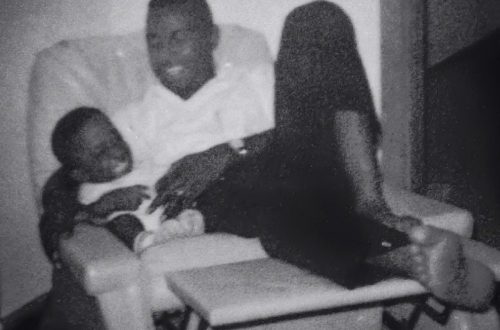The manner in which you practice being honest defines your character. If the things you say are true and you do what you say you’re going to do the vast majority of the time, you build a reputation for having integrity.
Your word is your bond.
If people can’t trust you to be honest in what you say and to do what you say you’ll do, you have nothing.
–My Parents
The opposite also holds true. If the words that come out your mouth prove to be duplicitous and you can not be counted on to do what you say you’ll do, your reputation will take a sharp turn for the more dishonest end of the spectrum.
A title or position of authority has the ability to temporarily cloak even the most corrupt designee with a good standing. According to the folks at Gallop, the ethical standards of nurses, pharmacists, medical doctors, high school teachers, police officers, and clergy rank as the highest of all professions. But even these individuals are only as credible as long as their words match their actions. And let’s not forget the effectiveness of physical beauty. For those of us who have no title, charm, or good looks to rely upon, we have to watch what we say.
But shouldn’t everyone?
In general, most people are willing to give others the benefit of the doubt without questioning intentions. This generosity should not be taken lightly.
Funny thing is, while acquiring a good name for uprightness takes a considerable amount of time and effort — the result of a conscious decision to be forthright with people even in the little things — the time it takes to damage one’s own reputation is much less compared to the time it takes to build one. A few untruths here and there, and you’ve pretty much shot your public persona in the foot. It’s like the bigger the falsehood, the bigger the damage.
I won’t even go into intentional deception.
Wait. Yes, I will. This is too good to pass up.
If you’ve watched “Game of Thrones,” you know exactly what I’m talking about when I mention intentional deception, misleading or sabotaging others to further your goals. Remember when queen regent Cersei Lannister decided to teach Margaery Tyrell a lesson by teaming up with the High Sparrow? Things didn’t turn out quite the way Cersei planned, did they? She found herself snared in the same trap she set for daughter-in-law.
(Yes, I snuck in a little “Game of Thrones” on you. Ha!)
Unlike Cersei, Ramsay, Stannis, or any of the other inhabitants of Westeros we love to have, we live in the real world. Thankfully (or unfortunately depending on your disposition) exacting revenge is never a good choice, especially when meted out in a style similar to those of House Lannister or House Baratheon.
So what do you do if you fall prey to those who deceive for sport or ambition?
Forgive them. (Don’t forget. We live in the real world, not in Westeros.)
Forgiveness is something we do first for ourselves. Forgiveness is deciding to opt out of dragging around an emotional boat anchor of angst. It’s choosing to accept the past for what it was, leaving it there, and moving on with your life.
But forgiveness is not a magic cure-all.
Choosing to forgive does not mean the incident is wiped from your memory. Forgiveness is not a fast pass to the World As It Was Before. Nor does it mean that you have to trust the transgressor. When known dishonesty exists between two people, trust can not exist; and the relationship is broken.
Dishonesty is the thief of trust.
So, great. You have a relationship in which trust has been broken, you forgave the other person, you can’t forget what they did, but you don’t trust them. Now what?
If you’re the person wronged, you take the high road—foregoing detours involving retribution—and move on.
But if you’re the person who inflicted the damage, the responsibility falls solely on you to initiate restoring the relationship, if the injured is open to you doing so. A glib “sorry about that” is not an adequate remedy when volitional acts of deception are involved. That’s the same as cold-cocking someone and muttering “oops, sorry” while stepping over their unconscious body sprawled on the ground and continuing merrily on your way. Laugh, but people behave this way everyday.
My point: you suck it up, make amends, and work at regaining their trust. Period.
I know this guy who’s had a pretty tough go of things over the last few years. He suffered an on the job injury, lost his job due to the injury, slipped into a massive depression because of his prolonged unemployment and financial worries, and was put on disability which didn’t get settled for years. During that time he became emotionally abusive to his family. Eventually, his disability claimed was settled, he talked to counselors, and realized the harm he had been inflicting on his loved ones. You know what he told me?
I gotta fix this. I have to show my family that I’m not that guy anymore. If it takes everyday of the rest of my life, I have to let them know until they understand that I’m sorry for what I did and I am not going to do it again.
Until you make reparations, jacked-up relationships will be the new normal. Choosing not to discuss the matter does not mean everything’s okay. Your actions and silence say loud and clear for all the world to hear that you can’t be bothered with the other person’s wellbeing. This alone proves you’re not worthy of their trust.
They deserve better. And so do you.
Allowing large amounts of time to pass before discussing what happened only paves the way for more damage to be done, along with more stewing, more festering, more silence, and when you least expect it there’ll be a huge blow-up over something trivial.
Most people would prefer open and honest communication as opposed to forced geniality. We’re all adults. Man-up/woman-up, and make things right.
Yes, I guess this topic was spring-loaded.



Jonathan says:
Discovered your blog via Facebook Clay. Absolutely beautiful.
Jonathan
Clay Rivers says:
Thank you!
Linda Parvin Hutchinson says:
Clay, I think this is an important post for our times. These are interesting days where the “truth” can be stretched, half-truths are acceptable, and people are too easily disposable. I also believe that honestly is imperative with any relationship we establish in this earthly realm. If you can’t believe those you trust the most…then nothing anyone can say will matter. It is not acceptable to lower our standards. It is not acceptable to expect dishonesty. I want more.
I love this post because I believe in a future where higher standards will be the norm. It simply takes one thoughtful person at a time to bring about needed change. I believe that. Let’s do it.
Clay Rivers says:
Linda, thanks for stopping by. Without sounding melodramatic, I agree that honesty is the bedrock of society. I think the more we toss it aside, the quicker our descent into anarchy. It’s a given that “everyone” will not be honest, but if we can turn the tide toward integrity that’d be an awesome thing.